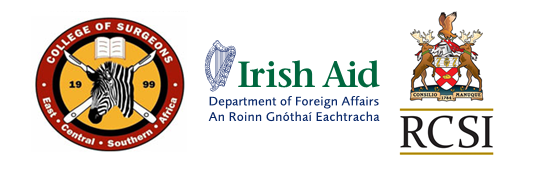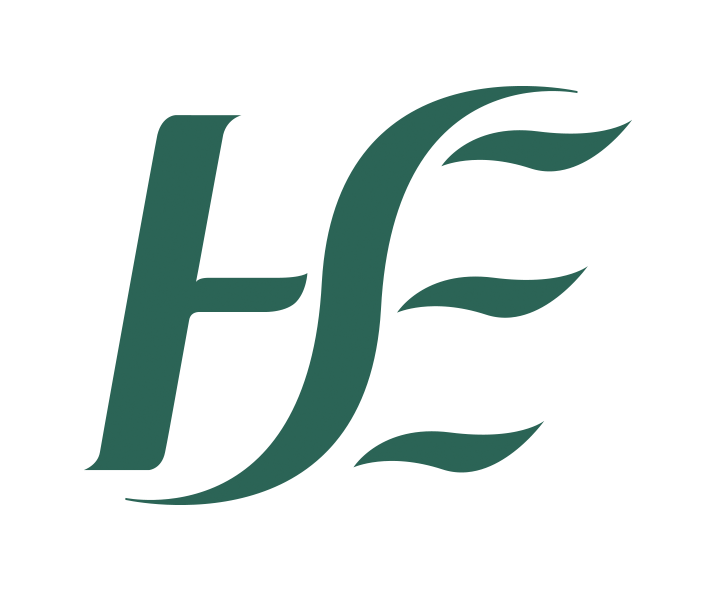
The first partnership in ESTHER Ireland is the Collaboration Programme between the Royal College of Surgeons Ireland (RCSI) and the College of Surgeons of East, Central and Southern Africa (COSECSA) which joined in December 2012. The RCSI/COSECSA collaboration is a long-term partnership. The aim is to train and retain more surgeons in sub-Saharan Africa and make better surgery available to more patients.
The partnership now reaches 14 countries that are members of COSECSA: Botswana, Burundi, Ethiopia, Kenya, Malawi, Mozambique, Rwanda, South Sudan, Sudan, Tanzania, Uganda, Zambia, and Zimbabwe.
The collaboration programme aligns its workplan to COSECSA’s strategic goals. It is overseen by a Steering Committee made up of an equal number of members from RCSI and COSECSA.
The five primary objectives for the RCSI-COSECSA Collaboration
Objective 1: Establish adequate COSECSA administrative capacity to carry out all the functions of an international standard surgical training college and ensure COSECSA’s sustainability.
Objective 2: Expand and enhance surgical training programmes for COSECSA MCS and FCS candidates.
Objective 3: Expand and enhance basic surgical training programmes for non-surgeons.
Objective 4: Enhance and quality assure COSECSA’s examinations processes.
Objective 5: Cement COSECSA’s place as the hub of surgical training information and professional development in the ECSA region.
Projects and Activities
- Designing and reviewing curricula for nine surgical specialities.
- Developing the first Objective Standardised Clinical Exam (OSCE) model for surgery in the region.
- Administering and delivering exams at membership and fellowship levels, and reciprocal examiner exchange between both colleges.
- Providing Train the Trainer and Master Training/Leadership. workshops for surgeons and allied health professionals.
- Developing bespoke e-learning resources and an online platform, schoolforsurgeons.net
- Establishment of Women in Surgery Africa (WisA) to promote surgery as a career choice for women.
- Promoting a research culture and strengthening COSECSA’s journal
- College administration and business development.
- Financial planning, fundraising and governance.
- Embedding a quality assurance culture in all aspects.
Accomplishments
- As of December 2019, COSECSA has graduated 458 specialist surgeons and is on course to achieve its target of graduating 500 surgeons by 2020.
- More than 93% of surgeons who train in the region are retained in Africa.
- COSECSA has grown to have accredited 120 hospitals in 17 countries and there are currently 570 surgical trainees enrolled in training.
- Since 2014, COSECSA trainees have recorded performing or assisting in more than 200,000 operations.
ABOUT THE PARTNERSHIP
The RCSI/COSECSA collaboration is a long-term partnership that aims to train and retain more surgeons in sub-Saharan Africa and make better surgery available to more patients.
The partnership now reaches 14 countries with membership of COSECSA spanning the following: Botswana, Burundi, Ethiopia, Kenya, Malawi, Mozambique, Rwanda, South Sudan, Sudan, Tanzania, Uganda, Zambia, and Zimbabwe.
Highlights in 2019
- Presenting 85 new surgeons with their Fellowships, which brings the total number of COSECSA graduates to 346.
- Over 90% are retained in Africa. COSECSA is well on track to achieve its strategic goal of graduating 500 surgeons by 2020
Reaching the milestone of 200,000 operations recorded in the E-logbook!
The E-logbook is used by trainee surgeons in over 17 countries in Sub-Saharan Africa making it possible for COSECSA to see in real-time what injuries and illnesses they are treating, gain a sense of patients’ needs across the region, and understand COSECSA’s impact.
Setting up a new Editorial Board for the COSECSA journal. This journal publishes case reports, clinical research and editorials from surgeons and allied health staff in the region. In contrast to many academic journals, the members of the Editorial board are primarily from low-middle income countries.
Plans for 2020
The CP wants to improve the e-learning platform so it is accessible to surgical trainees and trainers across the region. We hope to continue to develop curricula for smaller, underserved specialities such as paediatric surgery and plastic surgery. Women in Surgery Africa (WiSA) which was set up as a women’s branch of COSECSA in 2015 is thriving; through the partnership we will continue to promote surgery as a career for women. Overall, we are focusing on embedding quality assurance across COSECSA.

